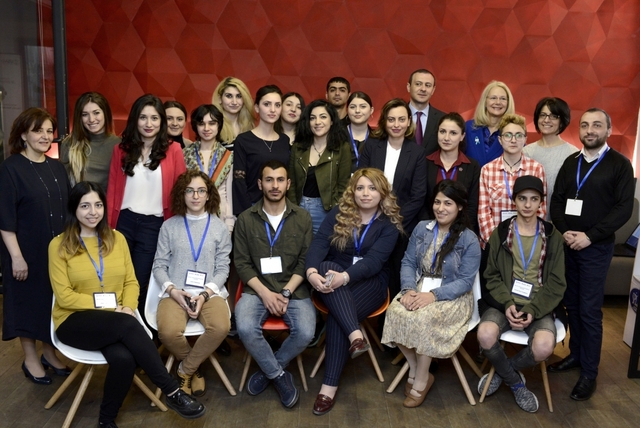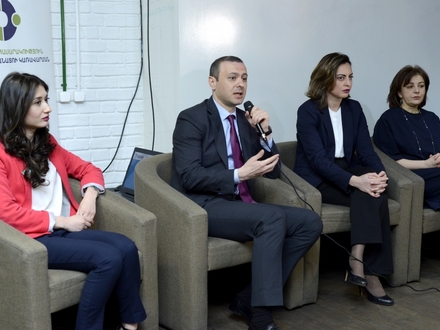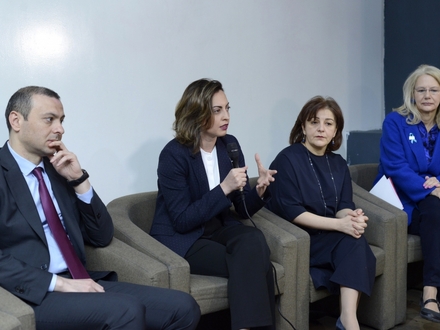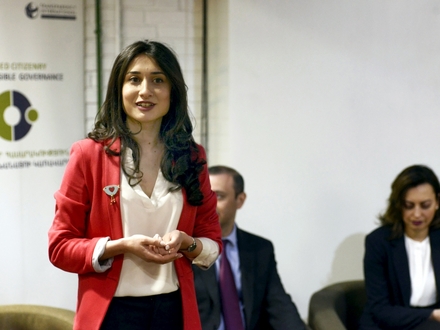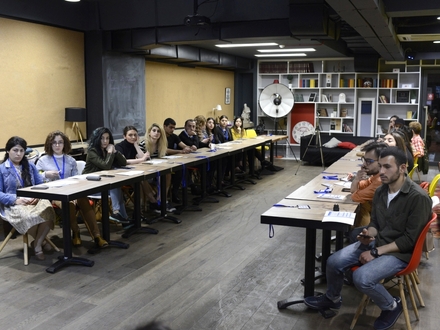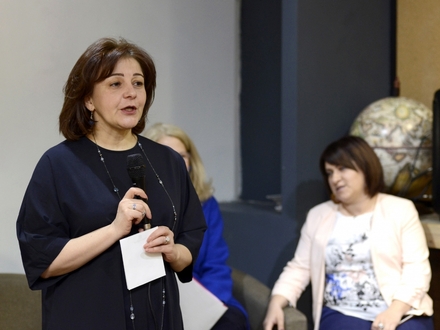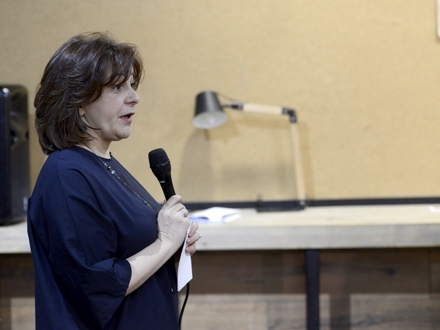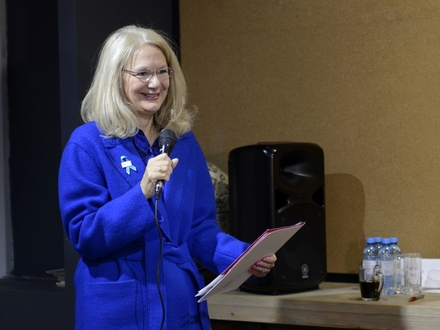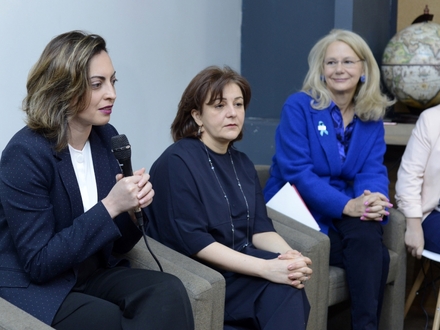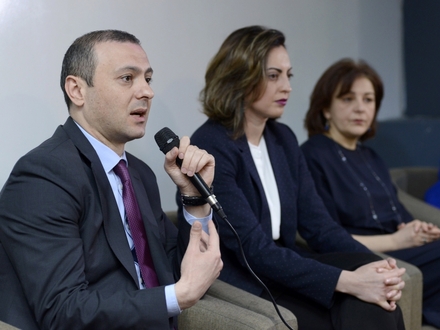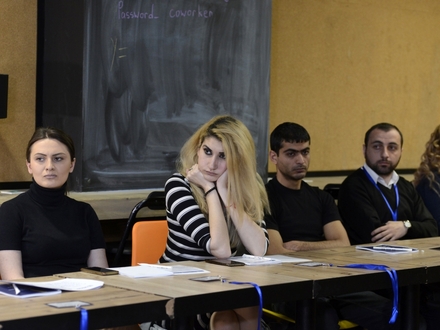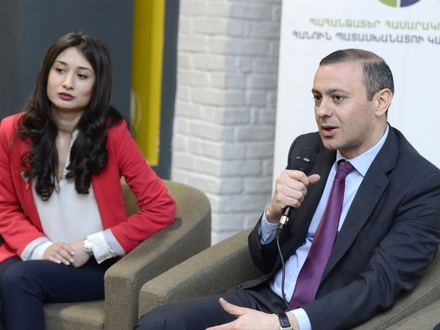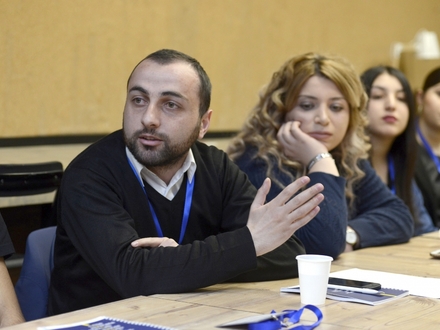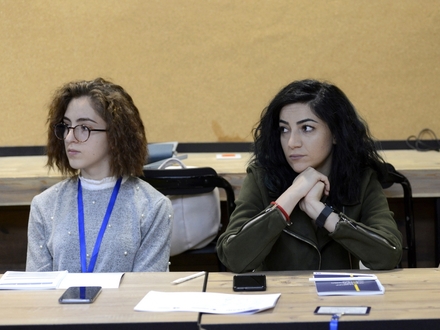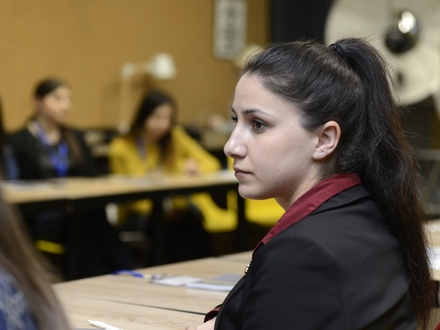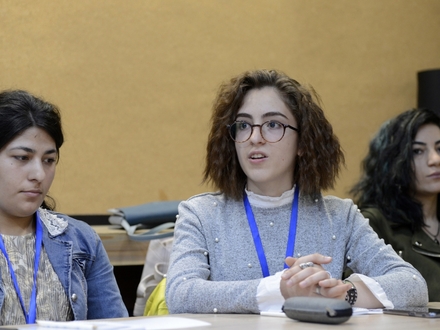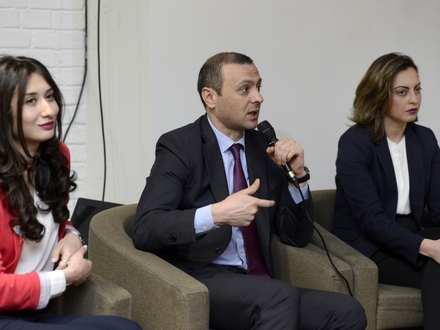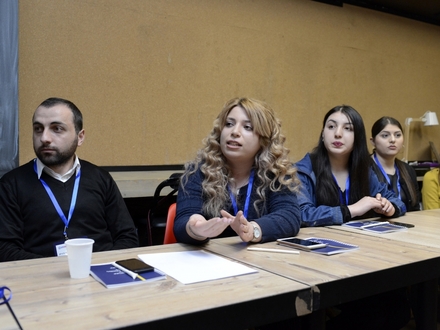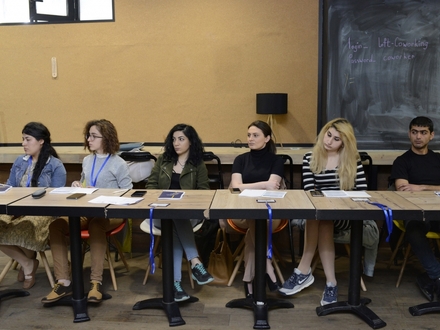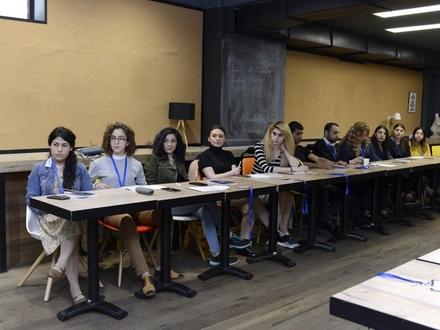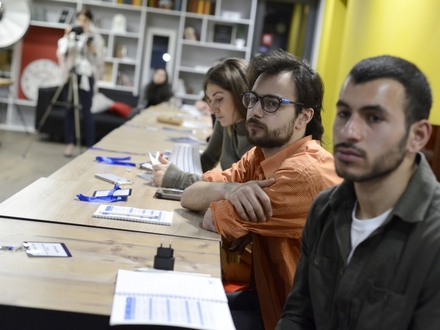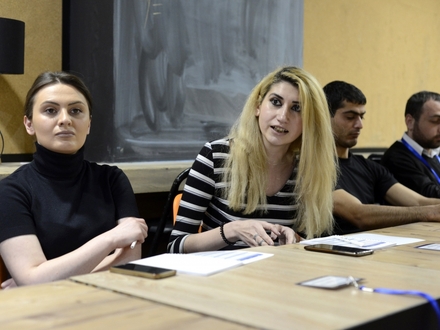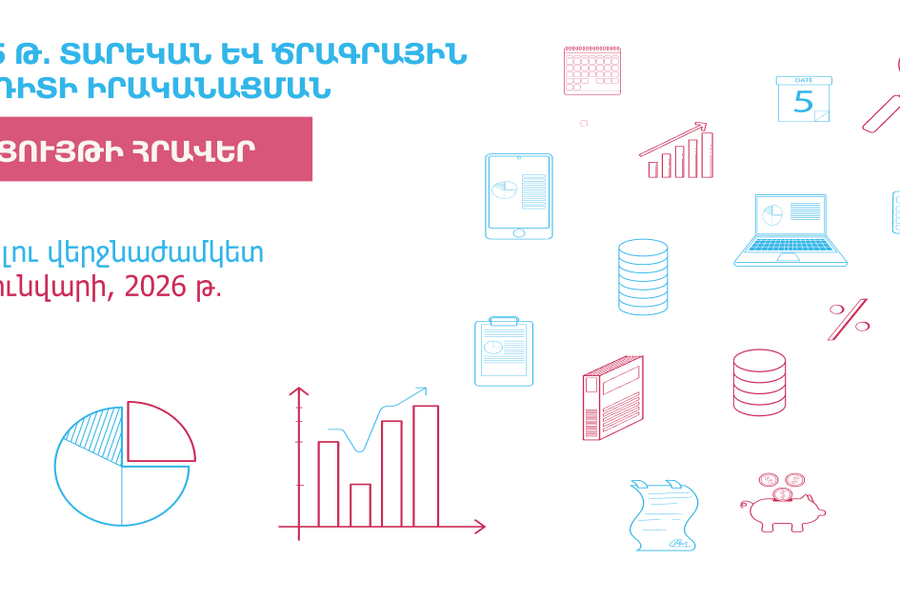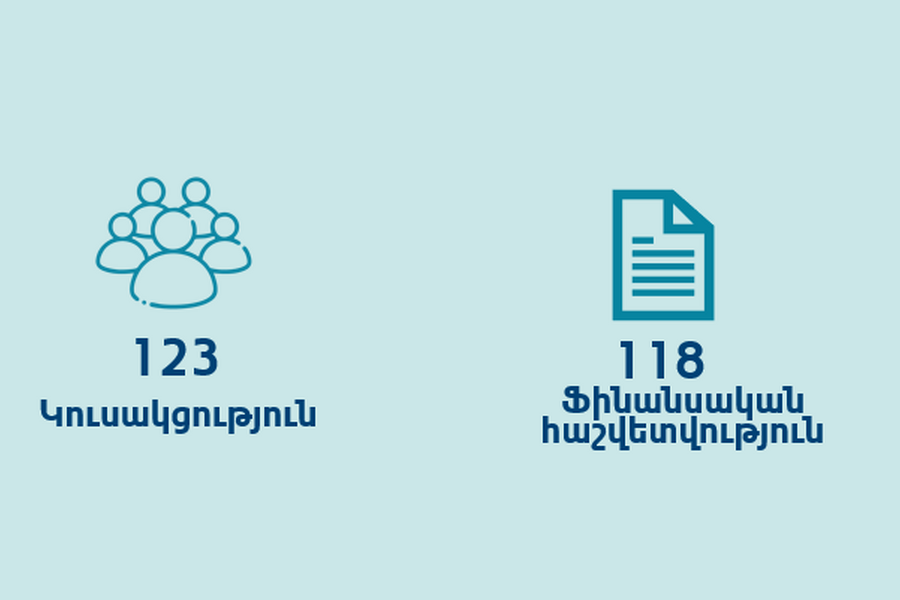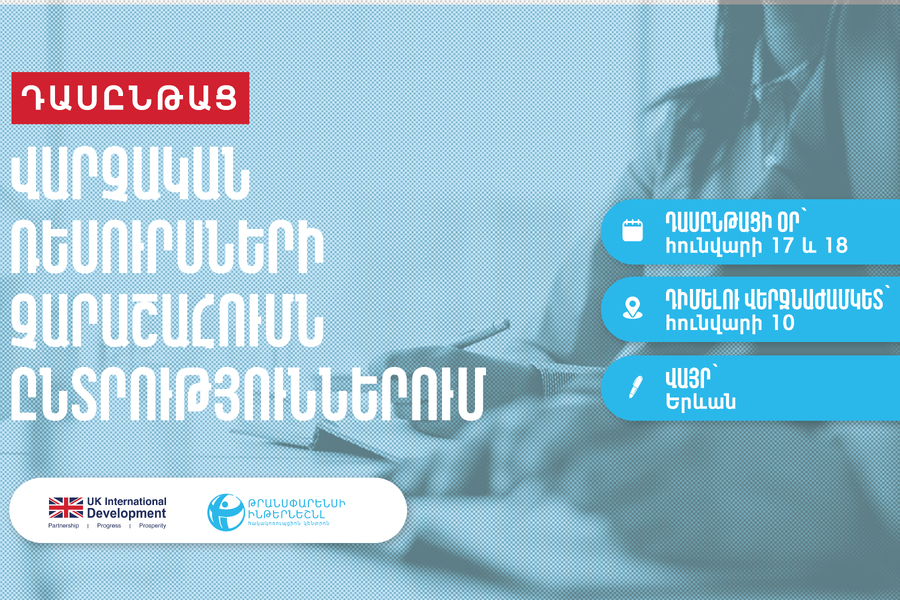Anti-Corruption School has launched
On April 27, on the occasion of the Day of the Citizen and in the frameworks of the Engaged Citizenry for Responsible Governance projected implemented by Transparency International Anticorruption Center (TIAC) with support from US Agency for International Development (USAID), the Anti-Corruption School was launched.
Secretary of the Armenian National Security Council, Armen Grigoryan, Deputy Speaker of the National Assembly, Lena Nazaryan, USAID Mission Director, Deborah Grieser, TIAC Executive Director, Sona Ayvazyan, and TIAC Projects Coordinator, Tatevik Barseghyan delivered opening remarks to the event.
According to Armen Grigoryan, it would be impossible to promote intolerance towards corruption without citizens and thus, it is very important for citizens to actively participate in the process of the development of the state. Armen Grigoryan also delivered a lecture for the participants of the School on the topic of corruption & security.
Lena Nazaryan, Deputy Speaker of the Armenian Parliament, congratulated participants of the Anti-Corruption School on the Day of the Citizen as well as for being selected to attend the School. Highlighting the knowledge on corruption and anti-corruption mechanisms, Nazaryan noted, “We all need to be more informed because only knowledge will allow us to recognize crimes related to corruption and combat them head on. If we do not possess that knowledge, we will endanger both ourselves and others.”
Welcoming the first participants of the school, USAID Mission Director, Deborah Grieser said she hoped the Anti-Corruption School would equip the participants with tools that they would use to work with others who also wish to fight corruption in Armenia. “Armenia is in transition and this is mostly because of you, the role that young people have played. Your energy was truly a great source of inspiration for democracy,” she added. About twenty participants aged from 18 to 30 attended the Anti-Corruption School.
TIAC Executive Director, Sona Ayvazyan, in turn, spoke of changing objectives. “After the revolution, we understood that our goals were somewhat changing. The role of the citizen is now valued more than ever. We used to think that citizens needed to be informed, in control, participating, demanding. Now we think that on top of all those qualities, they also need to be wise and consistent. We very much hope that you possess all those features and that is why you have wanted to participate in these courses,” said Sona Ayvazyan.
Coordinator of the Anti-Corruption School, Tatevik Barseghyan introduced the participants to general information on corruption, causes of corruption in various sectors and its consequences. “It is not a coincident that the School launches on the Day of the Citizen because citizens are the real drivers of the anti-corruption effort, the young people who are attending this School today,” Tatevik mentioned in her remarks.
An active discussion ensued the presentation of topics, while speakers also took questions from the participants.
The School will also hold a number of discussions and lectures with senior specialists and researchers from different sectors as well as civil society representatives and state officials. The entire course will be free of charge, with participants also having the chance to develop programs using the knowledge obtained along with their ideas on fighting corruption. The best programs will receive support from the Engaged Citizenry for Responsible Governance project. Participants who will have attended at least 80% of the sessions will be awarded certificates of completion.
Transparency International Anticorruption Center (TIAC), Journalists’ Club Asparez and Hetq Investigative Journalists NGO are partners of the Engaged Citizenry for Responsible Governance project implemented with support from USAID.
The launch of the Anti-Corruption School was also widely covered in the local media.


